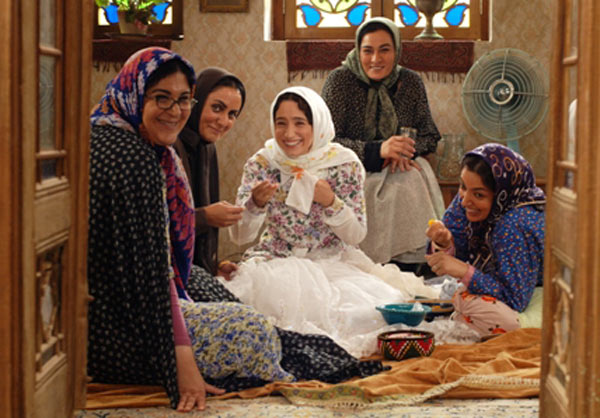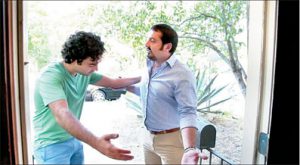Imagine traveling through a place where you’re invited into strangers’ homes, offered free food and drinks, and the taxi drivers refuse to take money from you. Sounds like every traveler’s dream, no? Actually, this is a typical day as a traveler in Iran. Read more to learn how Iranian hospitality is practiced.
Three Reasons Why are Iranians So Hospitable
I think every traveler who has been to Iran can agree: Iranian hospitality is remarkable. After living in Iran for almost two years, I consider Iranian hospitality to be exemplary for three reasons. Firstly, in Islam the hospitality relationship is triangular; it consists of the host, the guest, and God. To be treated with hospitality is a right of a guest, rather than a gift, and the duty to supply it is a duty to God.
Secondly, after the revolution in 1979, Iran got a gnarly reputation and as a result, it did not see many foreign tourists for about 35 years. In 2015, the Nuclear Deal was signed and this was a catalyst for tourists to return to Iran after a long hiatus. As far as hospitality is concerned, tourists coming into this era will get the best experience. Iranians are super keen to prove to foreigners that they are not the war-hungry, extremist people so often portrayed in the media. For more, check out Iran: What you’ve never heard.
Thirdly, this undying hospitality can be attributed to the culture of tarof. Tarof is a strange yet beautiful Iranian custom that travelers need to understand. Tarof is a concept that cannot be directly translated into English, but it means something like, to offer. The idea is that you always offer something to someone, to be polite. This offer is a tarof. Though the person offering should be prepared if the other accepts, in most circumstances, it is polite to refuse the offer. This refusal can also be another tarof. Confused? Read on to understand further.

Iranian families, especially traditional women, are great at hospitality- A scene from the Iranian movie: ‘A Cube of Sugar’
Tales of Tarof; Meeting Iranian Hospitality
I’ve experienced many a tarof and I’ve been left feeling confused, embarrassed and extremely gracious afterwards. The most basic form of tarof occurs when walking through a door. Iranians will stand aside and repeatedly say ‘befarmaeid’ to one another before someone caves in and walks through first. It is polite to partake in this interaction a little, if not for tarof’s sake, just for fun! But this is just the beginning; Tarof gets really intense!
On my first trip to Iran, I was traveling through Kashan with two friends. This was where I began to understand the culture of tarof. The man who had rented us our apartment (Hossein) kindly offered to show us around some of the sights and then proceeded to invite us to his house for a cup of tea in the evening. Several cups of tea and a few hours later, we were well acquainted with Hossein, his sons, his hot pink bathroom and his coin collection! The following day we were walking in the street trying to find a way to the famous Finn Garden. All of sudden, we hear our names being called from a nearby shop selling kitchen cabinets. It was one of Hossein’s sons! After being invited in for lunch we asked how to catch the bus to Finn Garden. Before we knew it, we were speeding along the streets of Kashan chauffeured by our new friend, trying to politely decline a dinner invitation.
Once at the Finn Garden, I wandered off to the café to grab an espresso. Here Mitra, a beautiful young woman who worked at a local travel agency, approached me. We got chatting and she invited my friends and me to accompany her for ice cream. She learned of our plan to catch the overnight train from Kashan to Yazd and insisted we come to her house to rest and freshen up before our overnight journey. We gratefully accepted her offer and proceeded to shower, nap, eat and drink with her and her family until they called us a taxi at midnight.
The hospitality I experienced during my trip to Kashan was second to none. In hindsight, I now realise that many of these offers we accepted were in fact, tarofs. Thing is, when you’re out of your chttps://1stquest.com/blog/best-worst-time-to-visit-iran-guide/omfort zone and you don’t grasp the culture of tarof, it’s hard to say no to these kind offers.
Read also: The Worst & Best Time to Visit Iran: A Month-by-Month Guide

Two Iranian men standing by a door and doing tarof to insist that the other one should enter the first
Why do Iranians Tarof?
In essence, a tarof is a gesture of generosity. Although it is polite to refuse a tarof, people will not tarof unless they are prepared to follow through. Without fail, every time there is a monetary transaction between two Iranians, the person who is taking the money will say, “you don’t have to pay”, as an offer of charity. If the person is not in a position to pay, then this is their opportunity to accept this tarof. The system is based on trust and tourists should not take advantage of these charitable offers to save a few bucks! For more Persian customs and cultural quirks read, 5 Persian Customs To Know Before Visiting Iran.
Talk is Cheap
Iranians will only mildly tarof with foreigners, the real tarof is saved for their fellow countrymen. Spoken Farsi phrases that translates to, ‘I am your slave’ and ‘I will sacrifice myself for you’ are as common as thank you and how are you in English (no exaggeration, I’m serious)!
How to Navigate Tarof as a Tourist?
Tarof can make it a little difficult to do monetary transactions. To avoid any awkwardness, you can pre-book your hotels, domestic flights and buses through 1stQuest and pay online using a credit card today! But still, if you have to pay for something, as a rule, it’s best to decline the first time someone offers you something. If they insist repeatedly, then it should be OK to accept. If tarof has you in a sticky spot, you can try these phrases:
- Nemi-too-nam: means I cannot accept
- Be-far-ma-iid: has many meanings including, here you go and please
- Mam-noon/Se-pas: thanks
- Meil-na-da-ram: I’m not hungry; I don’t want to eat
For more language tips, check out 100 Absolutely Necessary Farsi Phrases to Survive in Iran.
To conclude, there are no hard and fast rules for understanding tarof and other means of Iranian hospitality; however, just being aware of tarof and similar stuff will allow you to navigate it.


